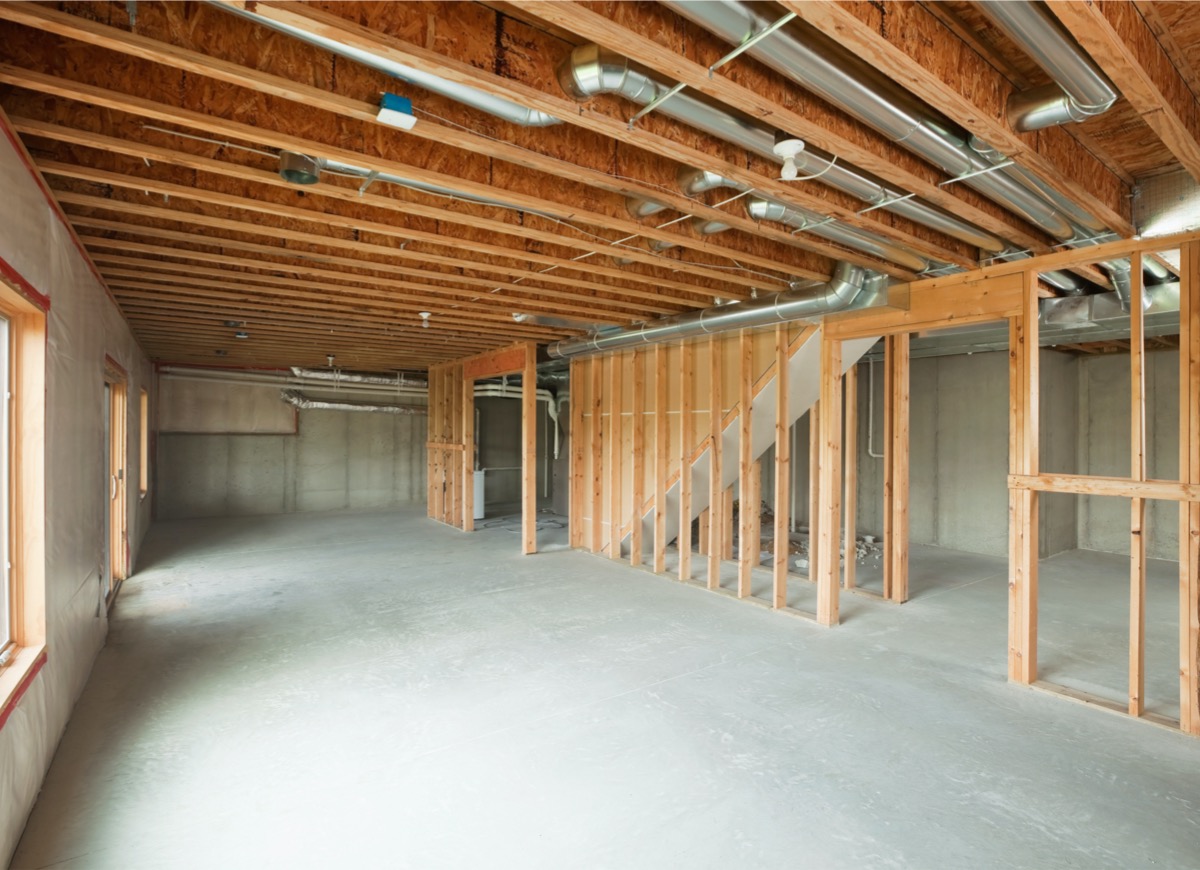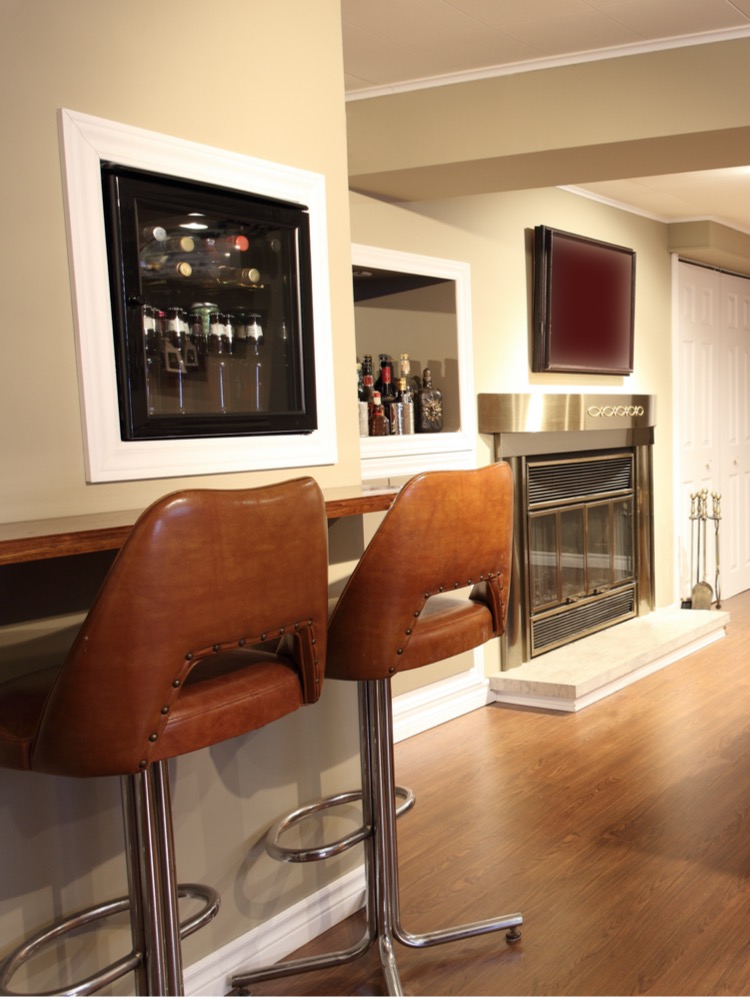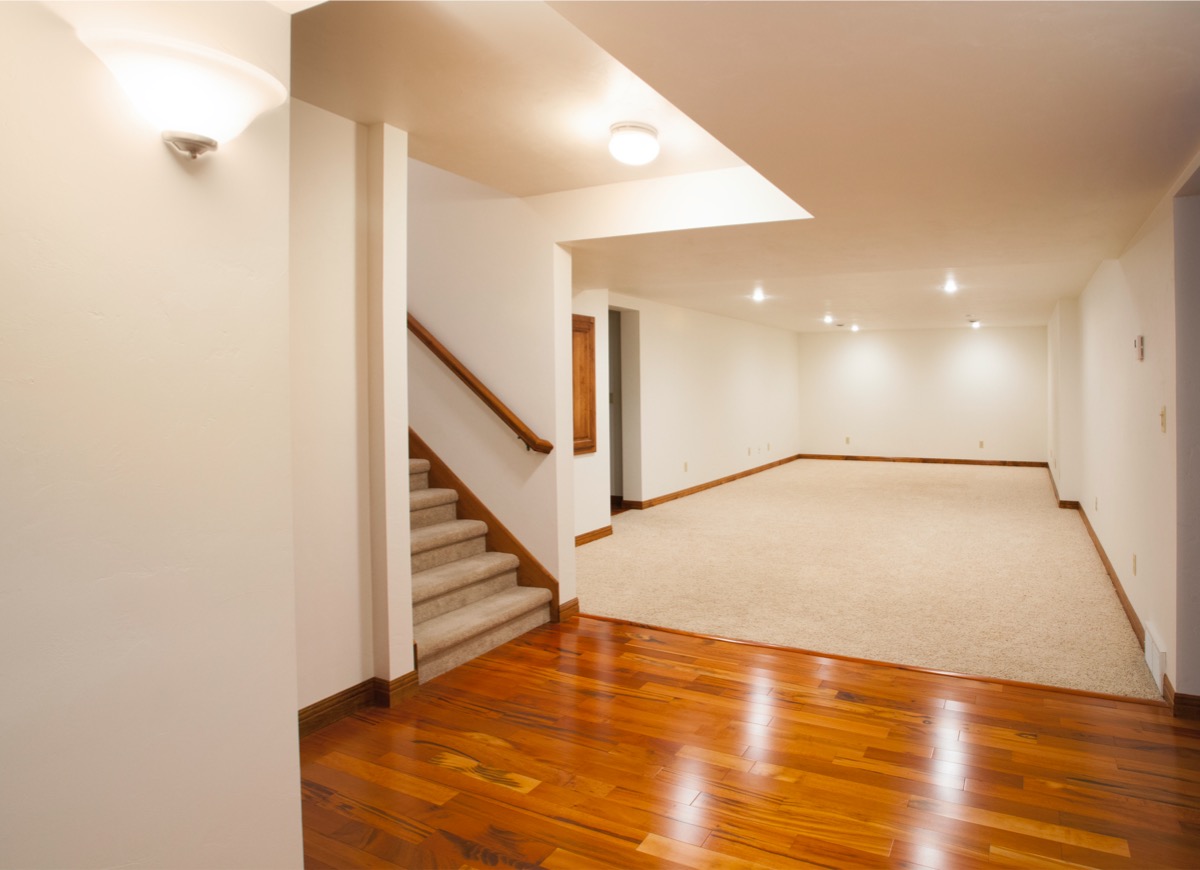We may earn revenue from the products available on this page and participate in affiliate programs. Learn More ›
While not all homes have basements—they are more common in cold-winter northern and Midwestern states where house foundations need to extend below the frost line—if you’re lucky enough to have this bonus underground space, then you should be sure it’s being used effectively.
If your unfinished basement mostly serves as a repository for old furniture and out-of-season holiday decorations, you are potentially wasting what could be additional living space. A finished basement is as versatile as you want it to be, but while the benefits are many, it’s true that there are also drawbacks. Here’s what to consider if you are thinking of finishing your basement.
Pro: It increases your home’s value.
If you’re thinking of selling your home in the near future, you want to do everything you can to increase its value. A finished basement is one way to accomplish that goal, as most potential buyers love the idea of a bonus room that they can use in multiple ways. Of course, even if you don’t plan on selling anytime soon, making the most of your home’s usable space also boosts its livability value to you.
Con: You might not recoup all of your expenses.
While it’s true that remodeling an unfinished basement increases your home’s value, it’s also true that you are unlikely to recoup 100 percent of your expenses. As a general rule, the increase in value only covers roughly 70 percent of what you spent on the makeover. Still, that’s a good return on investment for most home sellers.

Pro: The room can be whatever you want it to be.
Your bedroom, kitchen, and bathroom each have established uses that don’t vary much, but a finished basement is open to whatever you want to use it for. If you’ve been wishing for a home office, workout space, craft room, or even a more pleasant and organized spot for storage, you can have it. Of course, you can also design the room for more than one purpose, by designating separate areas for different uses.
Con: Basements can be dark.
Not surprisingly, a room that typically has few and small windows is going to lack natural light. That means your finished basement might not be the greatest spot for houseplants, but you don’t have to resign yourself to living in the dark. Plan for a variety of lighting sources to keep your newly renovated space bright—aim for overhead lighting and at least two lamps, depending on the size of the basement. If you’re planning to use the space as a bedroom, keep in mind that many building codes will require adding an egress window for safety.

Pro: It’s a great spot for noisy activities.
Neighbors complaining about your rambunctious toddler, teenager learning to play the drums, or loud parties? Once you take your noisy activities underground into your finished basement, those complaints should evaporate. A basement’s subterranean location naturally muffles sound, making it the perfect spot for loud activities that might otherwise bother your neighbors, or even other family members inside your home.
Con: Moisture can be a problem.
Thanks to being underground, moisture and basements tend to go hand in hand. The struggle with basement humidity, and the resulting mold and musty odor, is a real one for many homeowners. If your basement regularly has humidity levels above 50 percent, your remodel should include the purchase of a basement dehumidifier to keep the moisture under control.
Pro: It might be the only way to expand your home’s size.
Many homeowners want or need more square footage—maybe you have a baby on the way or need a home office—but often, expanding outwards or upwards is constrained due to the home’s design, the lot size, or restrictive local ordinances. By finishing an existing basement, you bypass those concerns, adding usable space without actually increasing the size of your home.
Con: It will be harder to access plumbing lines.
One advantage to an unfinished basement is that it’s generally easy to access plumbing and electrical lines when there’s a problem. Once you finish the walls and ceiling, reaching pipes or wires often requires cutting through the drywall. You can minimize this, however, by installing removable panels over important plumbing and electrical access points, then painting the covers to match the wall or ceiling.

